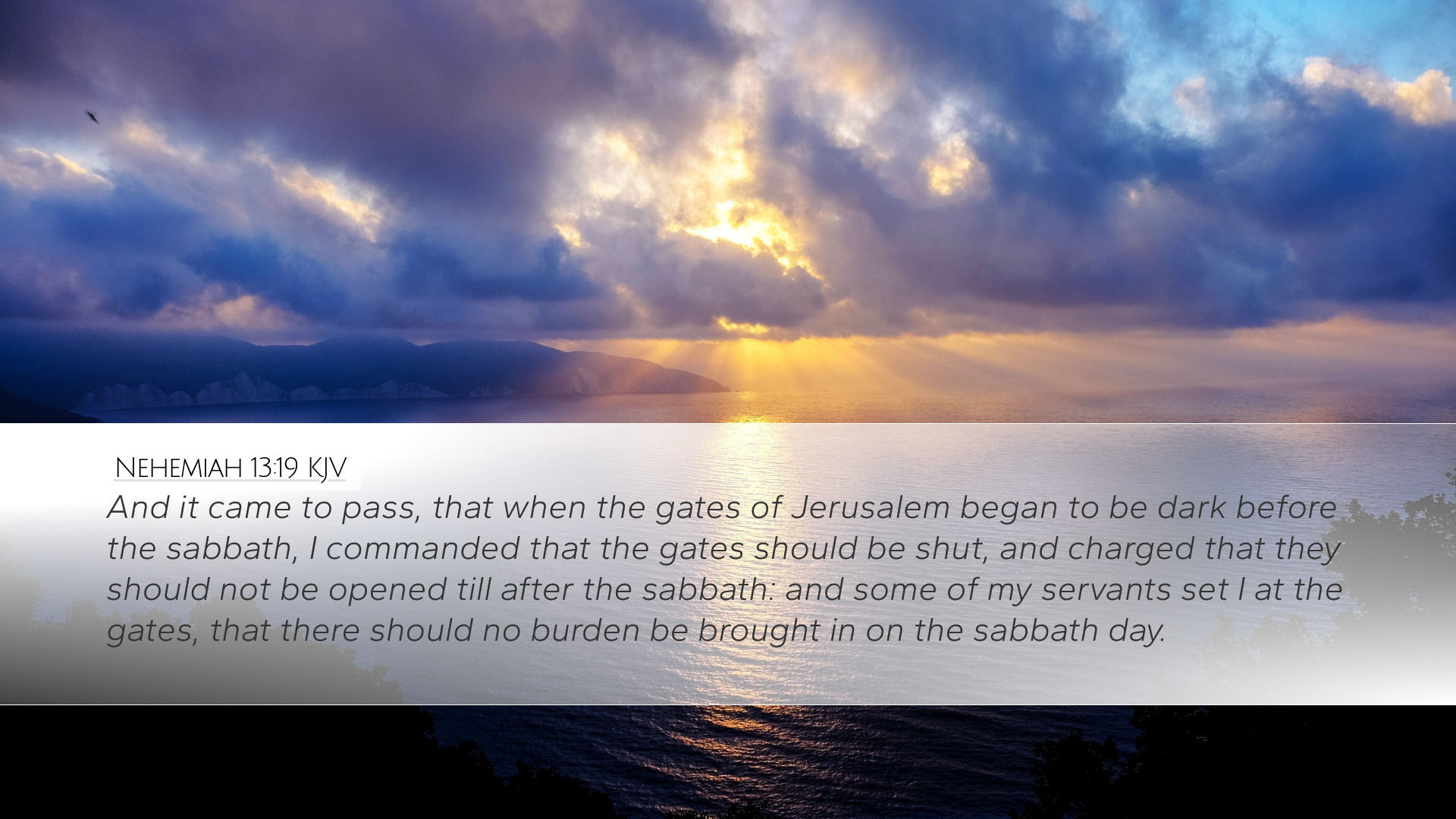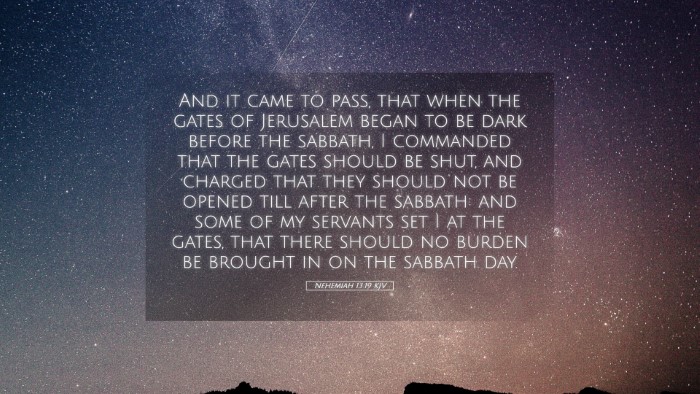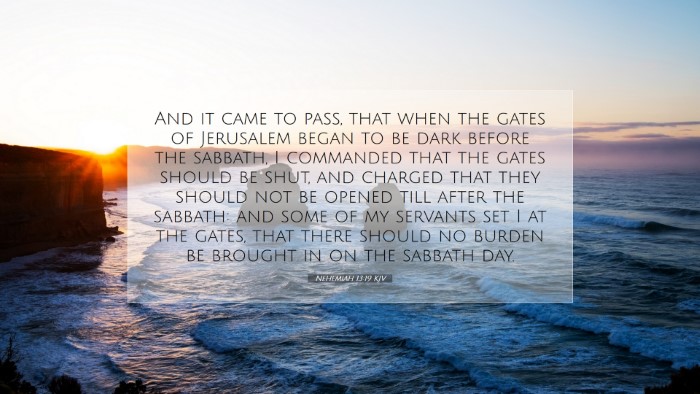Commentary on Nehemiah 13:19
Nehemiah 13:19 states:
"And it came to pass, that when the gates of Jerusalem began to be dark before the sabbath, I commanded that the gates should be shut, and charged that they should not be opened till after the sabbath: and some of my servants set I at the gates, that there should no burden be brought in on the sabbath day."
Context and Background
The Book of Nehemiah closes with significant reforms emphasizing the importance of the Law and the covenant with God. Nehemiah’s actions in chapter 13 are pivotal, revealing his commitment to maintaining the sanctity of Jerusalem and its observance of the sabbath.
Insights from Public Domain Commentaries
Understanding the Historical Context
According to Matthew Henry, the historical backdrop of this verse is critical. After Nehemiah's return to Jerusalem following his initial reforms, he discovers that the people have become lax in their observance of the sabbath. The gates of the city serve as a significant point of entry and defense, and their closure symbolizes a protective measure over the sanctity of the sabbath.
The Importance of the Sabbath
Albert Barnes emphasizes the spiritual significance of the sabbath in Jewish tradition. The sabbath was not merely a day of rest; it was a covenant sign between God and Israel, commemorating God’s creation and liberation of His people. Nehemiah’s order to shut the gates reinforces the notion that the sabbath must be protected from worldly influences, particularly from commerce which could lead to the desecration of this holy time.
Nehemiah's Authority and Actions
As noted by Adam Clarke, Nehemiah exhibits a strong leadership quality in this passage. He takes decisive action to enforce the Law. Nehemiah commands the gates to be shut, reflecting a proactive approach to leadership and care for the community's spiritual well-being. Clarke remarks on Nehemiah’s dedication to ensuring that the people stayed aligned with their religious duties, even at the risk of potentially severe economic consequences.
Theological Reflections
This verse serves as a critical reflection point for contemporary readers and leaders within the church today. The focus on the sabbath reverberates with the principle of setting aside time for worship, rest, and reflection in our lives. Nehemiah’s insistence on keeping the sabbath holy speaks to the need for modern believers to prioritize spiritual rhythms in the midst of a busy, often chaotic life.
The Role of Gatekeepers
The appointed servants to guard the gates signify the communal responsibility to uphold spiritual standards within the community. Matthew Henry notes that this act of vigilance is essential for any community that aims to live in a manner pleasing to God. This can extend into modern church contexts where leaders must ensure a culture that honors God’s commands.
Challenges to Sabbath Observance
In light of Albert Barnes's points, the challenges Nehemiah faced with maintaining sabbath observance are relevant today. With the pressures of modern society often conflicting with the call to rest and worship, this verse becomes a warning against allowing secular habits to infiltrate spiritual life.
Practical Applications for Today
Leaders—pastors, students, and theologians—should heed Nehemiah’s example. Here are several applications:
- Prioritizing Sabbath Rest: Individuals should prioritize times of rest and sanctuary in their busy lives, echoing the ancient practice of sabbath.
- Creating Boundaries: Just as Nehemiah shut the gates, leaders should help create boundaries that protect the community's spiritual life.
- Community Accountability: Foster a sense of communal responsibility, where members encourage one another to observe spiritual disciplines.
Conclusion
Nehemiah 13:19 teaches us a vital lesson on sanctity, authority, and community involvement in preserving the values of faith. Through the insights of various commentators, we see the depth of meaning in Nehemiah's decisive actions and learn how they pertain to our lives today. As we reflect on this passage, may we be inspired to uphold the rhythms of rest, worship, and community responsibility in our own contexts.


